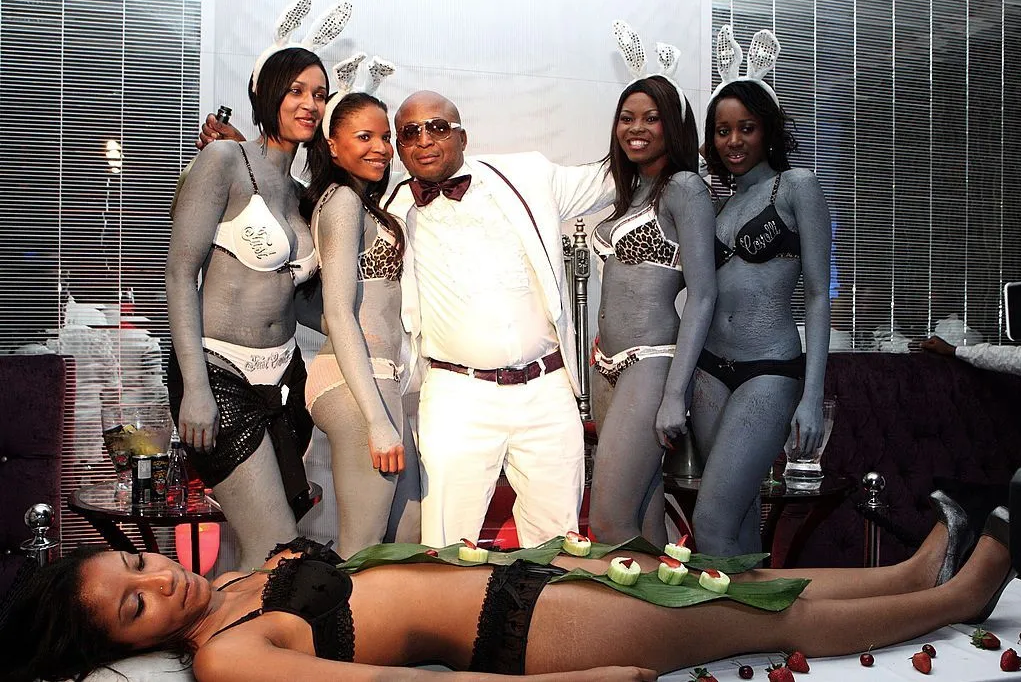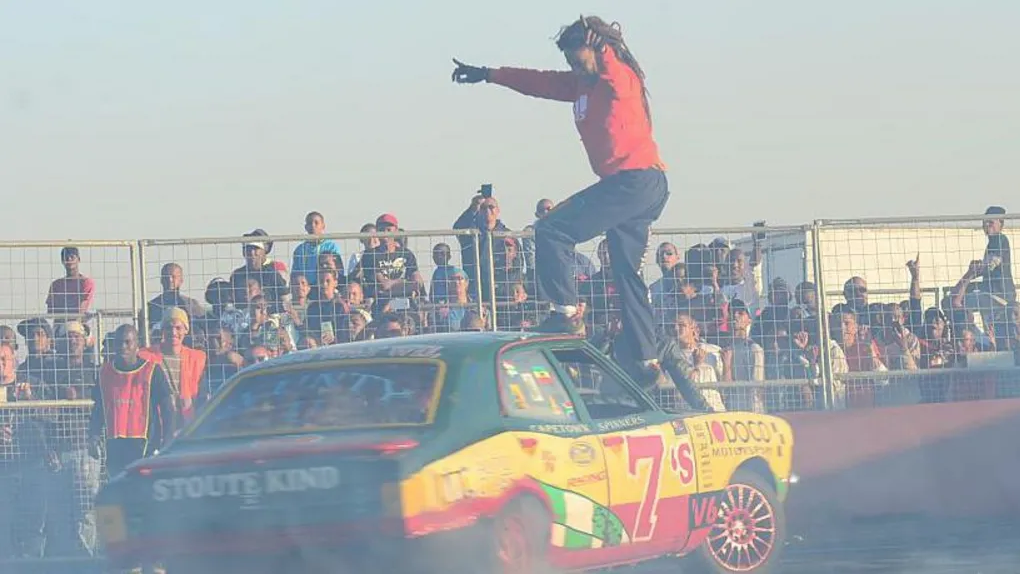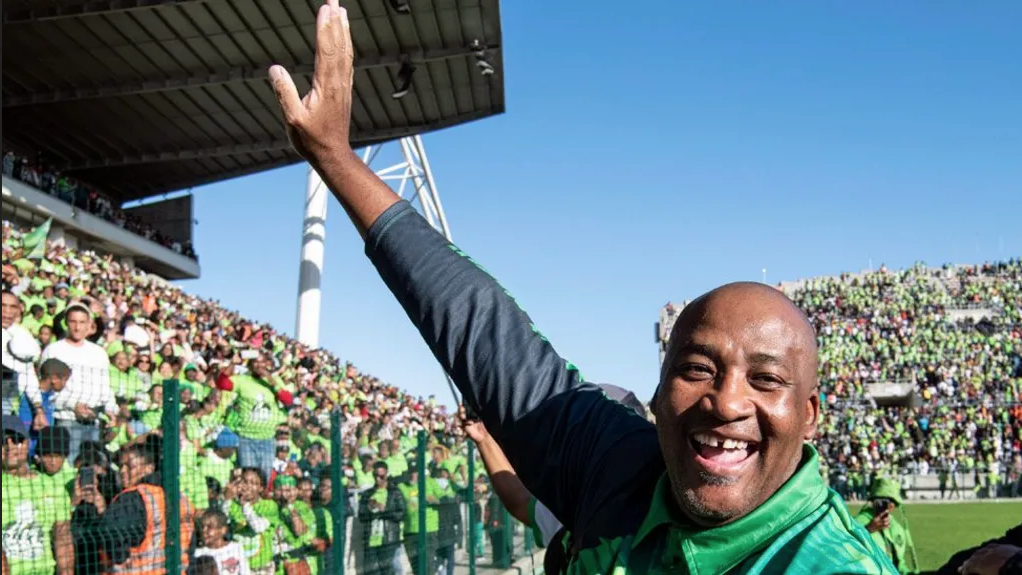A former gangster and bank robber who turned into a nightclub owner and opposition politician, Gayton McKenzie has now risen to become South Africa’s minister of sports, arts and culture.
President Cyril Rampahosa appointed Mr McKenzie – the leader of the Patriotic Alliance (PA) – to the portfolio in the multi-party government that he announced on Sunday after his African National Congress (ANC) lost its parliamentary majority in the 29 May election.
A prolific tweeter, the 50-year-od relished his appointment, posting a photo of himself putting on football boots and, with a touch of humour, typed: “Thank you for all the well wishing messages, I will reply shortly I’m just busy getting ready, I have work to do 🥅 ⚽️.”
For Mr McKenzie’s admirers, his appointment is the latest sign of how he overcame adversity to achieve success. He robbed his first bank before he turned 16, then became, as he put in an interview with a local radio station, a fully fledged gangster, spent seven years in prison, and vowed to change after his release.
“I might have had 12 rand in my pocket but I had billion rand in my mind. And that is what people do not understand – they concentrate on what they lack instead of how to get what they lack,” he said in a 2013 interview with public broadcaster SABC.
He became a highly paid motivational speaker, got books about his life published, including A Hustler’s Bible, and ventured into various businesses – from mining in Zimbabwe to nightclubs in South Africa – with Kenny Kunene, his soulmate from prison.
Mr Kunene earned the nickname “Sushi King” after he had sushi served on the bodies of women clad only in their underwear at his 40th birthday bash at the Zar Lounge nightclub in an upmarket suburb of Johannesburg, South Africa’s main city.

The nightclub subsequently shut, as did a branch in Cape Town registered in Mr McKenzie’s name following legal action over alleged unpaid rent and electricity, according to the IOL news site.
“I’m not in interested in clubbing. I’m busy with other projects. We killed the Zar brand – there are no future plans [for Zar],” Mr McKenzie was quoted as saying at the time.
These days, Mr McKenzie is better known as a politician, having launched the PA in 2013, with Mr Kunene, as his deputy.
More than a decade later, the party gained 2% of the national vote and fared better in elections for the provincial government in the Western Cape, getting 8%.
Its support came mainly from coloureds, as people of mixed-race are known in South Africa.
The PA’s signature slogan is “Ons baiza nie”, an Afrikaans phrase which loosely translates as “We are not scared”. Afrikaans is widely spoken in the coloured community, which makes up around 8% of South Africa’s population.
“For the first time there is coloured people also going to parliament through the Patriotic Alliance. We are the only party that takes all races to parliament,” Mr McKenzie said, after the results were announced.
Political analyst Kagiso Pooe told the BBC that Mr McKenzie had a “bravado” style, which appeals to his constituency.
“People want to believe and see someone that comes from their type of background and isn’t shy to say, ‘This is who I am.’ You see it with people like President Zuma, President Trump and other such personalities,” he said.
Mr McKenzie’s campaign against undocumented migrants was a vote-winner for him, the analyst added.
“Unfortunately, mainstream politicians and parties have shied away from this and he tackles it directly.”
Mr McKenzie’s critics denounced his campaign as xenophobic. He waged it under the slogan “Abahambe”, which is Zulu for “They must leave” – and, in a publicity stunt, he visited the border with Zimbabwe to chase away people trying to enter South Africa.
He was also accused of hypocrisy, as his critics pointed out that in the 2013 SABC interview he described immigrants from other parts of Africa, including Zimbabwe, as an “integral” part of South Africa’s economy, while “the problem with us is, black people I’m talking about here, we are lazy”.
As Mr Ramaphosa began negotiations over the formation of a coalition government, Mr McKenzie publicly said that he wanted his deputy to run the home affairs ministry, which is in charge of immigration.
He sought the police ministry for himself as he said his previous life as a gangster meant he was in a good position to tackle South Africa’s high crime rate.
“None of them [other politicians] are equipped to deal with the mafias, with the murder rates we are seeing. South Africa needs me,” he was quoted as saying by the TimesLive news site.

He was unperturbed when he failed to get the post, saying he had in fact asked for the sports ministry in “off-the-record” negotiations with the ANC.
“Sport can be used to change children’s lives. A child in sport is a child out of court,” he said.
“There’s one promise I’ve made: I will make spinning [of cars] one of the biggest sports in this country,” he added in a live Facebook post.
Car spinning is a recognised motorsport in South Africa – it involves vehicles being driven in circles and a driver climbing out to perform stunts.
But there are many unregulated events and as IOL sports journalist John Goliath wrote, stigma still surrounds it as a lot of people in the coloured, Indian and black townships often do spinning in the streets, which is viewed as dangerous.
“The spinning of tyres started in the townships as a ritual to honour fallen gangsters during the apartheid era,” he said.
Mr McKenzie has promised to make it possible for car spinning to take place in a safe environment, and to help to keep young people away from gangsterism and drugs.
“The spinners will be recognised,” he said, adding: “When a boy has an interest in cars, he doesn’t have time for drugs. He just worries about his car.”
But Mr Ramaphosa’s decision to give Mr Mckenzie a seat in his cabinet is politically risky, as he is at the centre of an investigation ordered by the Western Cape government, which is controlled by the Democratic Alliance (DA), a fierce political rival of the PA.
Until last year, Mr McKenzie was the mayor of Central Karoo, and was accused of failing to account for 3m rand ($161,000, £127,000) raised at a glitzy gala dinner in 2022 to improve public services, including repairing swimming pools and replacing bucket toilets.
According to local media, a court ordered him last month – just weeks before his promotion to the cabinet – to declare certain financial records to investigators.
While the PA described the ruling as “flawed”, the DA welcomed it, saying Mr McKenzie would “soon learn that corruption does not pay off”.
The DA kept up the pressure by picketing last week in the small town of Beaufort West, which is part of Central Karoo, to demand answers about the money.
Mr McKenzie said in a post on X that he intended to visit the area to give “feedback”.
“The truth shall come out. I have nothing to hide,” he said, adding: “Lies have short legs.”
Stay informed with The Namibian – your source for credible journalism. Get in-depth reporting and opinions for
only N$85 a month. Invest in journalism, invest in democracy –
Subscribe Now!







